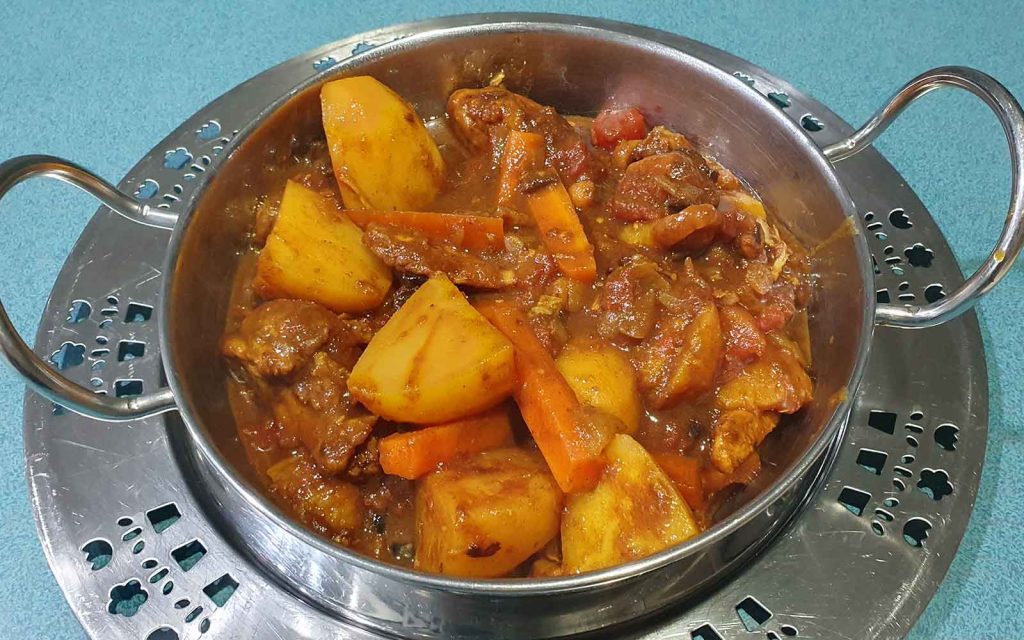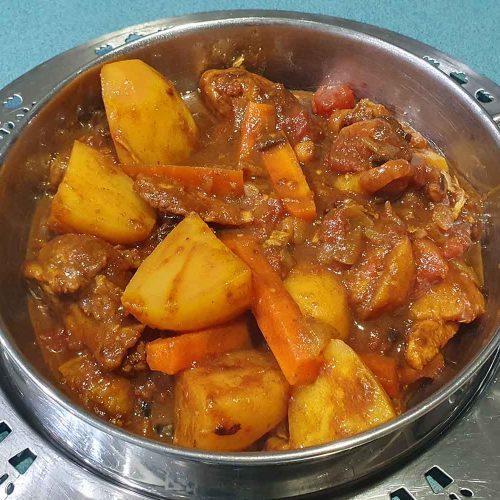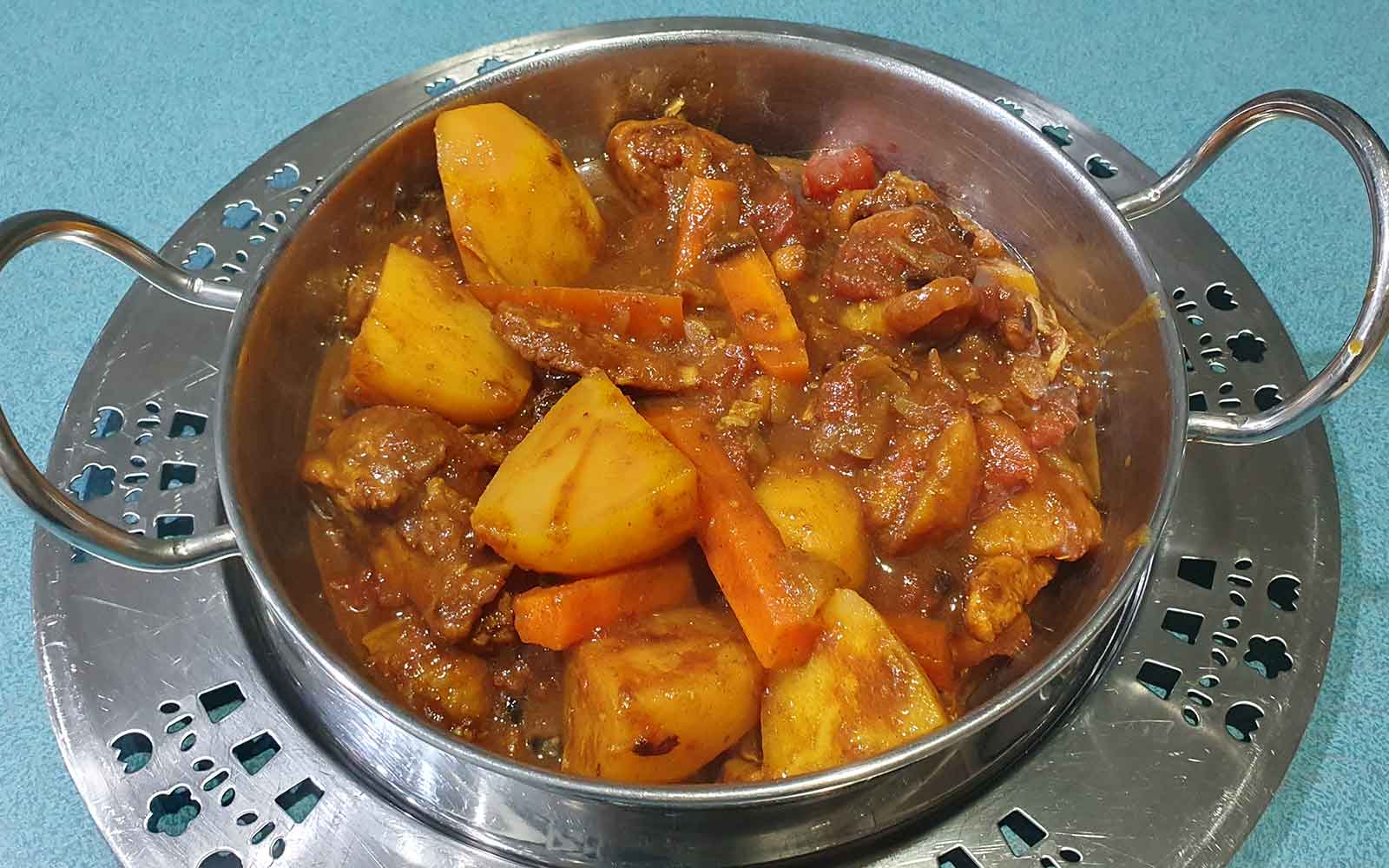
This delightful chicken stew with apricot and prune is a unique Persian recipe that beautifully combines the sweetness of dried fruit with the savory elements of traditional Persian cuisine. Inspired by my experiments with pomegranate syrup and various dried fruits, this recipe is designed to complement zeresht polo, a fragrant rice dish often served in Iran.
The slow-cooked chicken thighs, enriched with cinnamon, turmeric, and cumin, create a sweet and sour flavour profile that will transport you to the heart of the Middle East. The addition of prunes and apricots not only enhances the taste but also adds a lovely texture to this hearty khoresh. Perfectly paired with basmati rice or couscous, this dish is sure to impress your family and friends.
Comments on the ingredients
Chicken Thigh Fillets
I prefer to use skinless chicken thigh fillets rather than boneless chicken breast fillets. I find that the chicken thigh fillets have a much richer flavour and juicier texture.
Spices
Turmeric, cinnamon and cumin are fairly commonly used spices in Persian cooking, but at times, I will mix and match between turmeric, cinnamon, ground cumin, ground coriander seed, cloves, and cardamom. You can use cinnamon sticks instead of the ground cinnamon, but I dislike having the sticks in the final sauce, and prefer to use the ground spice. Each spice lends a different flavour to the dish. Each family have their own favourite spice mix, or Advieh. Different combinations of Advieh are traditional across various middle eastern regions.
Vegetables
I am a self confessed vegie smuggler, and add in vegetables to any dish where possible. I find that carrots compliment Persian dishes primarily with chicken and dried fruit, and a few potatoes bulk up the dish and go well with the rich sauce of this dish. Tinned tomatoes are a simple base to any Persian Khoresh.
Dried Fruit
I have experimented with this dish with various different dried fruits, including sultanas, raisins and even cranberries. I found adding the pomegranate molasses was the key ingredient to give this dish that tart sour taste to an otherwise sweet dish.

Persian Chicken Stew with Dried Apricots and Prunes
Equipment
- 1 Large frying pan with a lid
Ingredients
- 750 grams chicken thigh fillet
- 1 tsp cumin
- 1 tsp turmeric
- 1 tsp cinnamon
- 1 tsp salt
- ¼ tsp black pepper
- 4 carrots
- 4 small red potatoes
- 1 onion
- 1 tsp crushed garlic
- 1 tin crushed tomatoes
- 12 pitted prune
- 12 dried Turkish apricots
- 4 tsp peanut oil
- 4 tlp pomegranate syrup
Instructions
- In a large saucepan, heat oil over medium heat.
- Add spices and salt and fry till aromatic
- Add the onions and fry until the onions are translucent
- Fry the chicken with the spices, stirring while frying to ensure that the outside is sealed
- Add carrots and potato, and stir through
- Add tin of tomatoes and 1 tin of water and stir through to evenly mix
- Add chopped dried apricots and prunes, cover with a lid and simmer gently for around 1 hour
- Stir through pomegranate sauce and add additional salt and pepper to taste
- Remove the lid and slightly tun up the heat to medium high and cook for around 30 minutes until sauce is thickened, add salt to taste
Serve with Zeresht Polo and a side of yoghurt or Mast o Kher if needing to cut the sweetness of the fruit.

